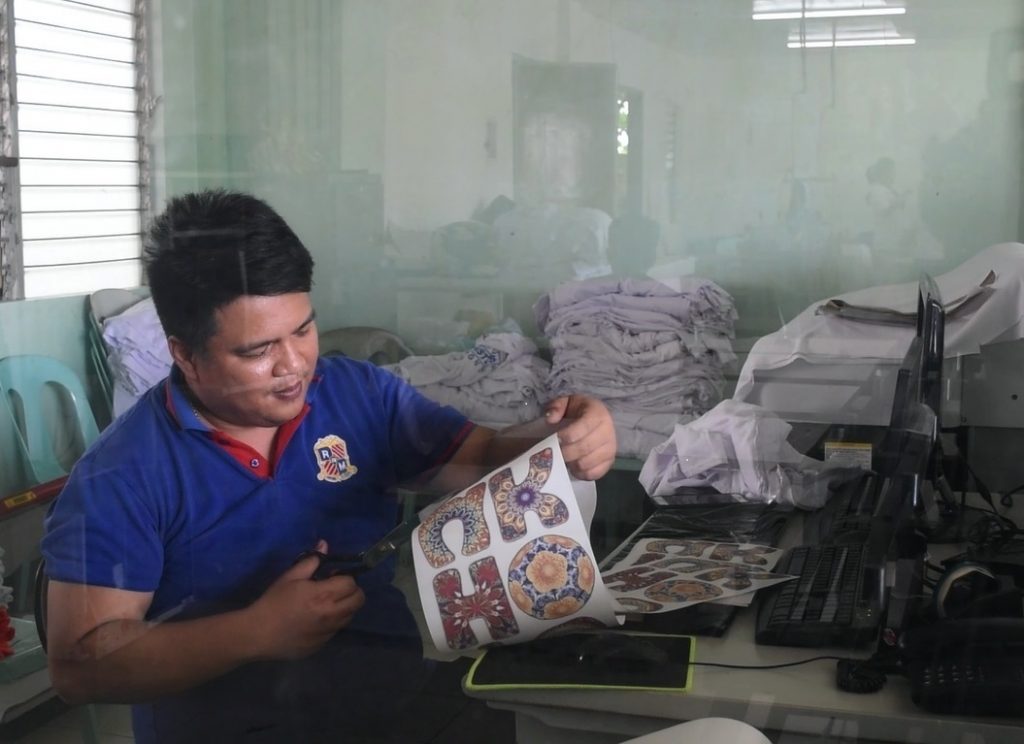Young businessman looks beyond the stigma, sets up livelihood project for recovering drug personalities
Featured, News July 16, 2019, 0 Comment 0
How can the business sector help in government programs for recovering drug personalities (RDPs)?
RBryan J. Mendiola IV, proprietor of One Thread Garments Enterprise and RBryan Marketing based in Davao City, has set an example.
“When I learned of the interventions offered by the City Anti-Drug Abuse Council (CADAC) to drug surrenderers, I went to CADAC and informed the in-charge I was interested to put up a livelihood project for the drug surrenderers,” said RBryan.
CADAC is a specially created office to take the lead in the prevention and control of drug abuse in the city and suburbs, established at the local government level through Memorandum Circular No. 98-227 of the Department of Interior and Local Government (DILG). It also serves as a repository of statistical data, information, and reports on drug users, abusers, and pushers coming from other law enforcement units, the barangays, other local government units (LGUs), and non-government organizations (NGOs).
“I wanted to train them and hire them so it won’t be hard for them to look for a job considering their background because people tend to ostracize them. This garment industry has vast potential for persons like them in terms of income, very lucrative on their part and also for them to have equal footing with others in society,” he expounded.
Davao City CADAC was able to find RBryan a partner to implement his noble plans for RDPs, through Dr. Corazon M. Umblero, Director of Community Development Services, University of the Immaculate Conception (UIC). UIC is also helping RDPs in their journey towards healing through its Kaduyog Sagop Kinabuhi Program.
RBryan presented his intention to help the clients, through his garments business, to Dr. Umblero. They agreed to work together, and UIC even offered the free use of its Mother Ignacia Development Center located in the city as the work area for the project. They called their partnership “One Thread Project.”
Aside from providing a source of income for RDPs, the proceeds of the project will also fund initiatives to help them further improve their work and survival skills, and pay for their board and lodging, and other expenses.
To date, 16 RDPs have been trained through the One Thread Project.
One of them is Riga, a mother of three, who became a beneficiary after her release from prison. The skills she learned in sewing and shirt-making has opened livelihood opportunities for her.
“To our drug surrenderers, let us continue the steps towards change. For private groups, I also encourage them to reach out and lend their hand to these people so that we can help our country and reduce crime. Let’s be productive and share our resources. No more blaming the government and others. Let us help these people, hire them, give them a chance to attain genuine change,” RBryan stated.
Dr. Umblero explained that the One Thread Project is a means to enhance the social fabric, “malasakit,” as represented by various public and private service providers of medical, psychosocial, socio-economic, and spiritual interventions.
“The recovery capital needs of persons in recovery is like the spindle that produces the necessary twists and loops us into a roll of thread,” she said.
Meanwhile, for Dahlia S. Padillo, Social Welfare Officer IV and focal person for program on drugs of DSWD Field Office XI, “One Thread Project” is a demonstration of the Yakap Bayan Framework, of pooling our resources, of embracing and empowering our drug surrenderers, and encouraging them to lead productive, meaningful lives.”
Yakap Bayan is an inter-agency collaborative framework which weaves together all existing government programs, projects, resources, and activities in order to create a holistic and sustainable approach for the rehabilitation, aftercare, reintegration, and provision of support services for RDPs. -30-